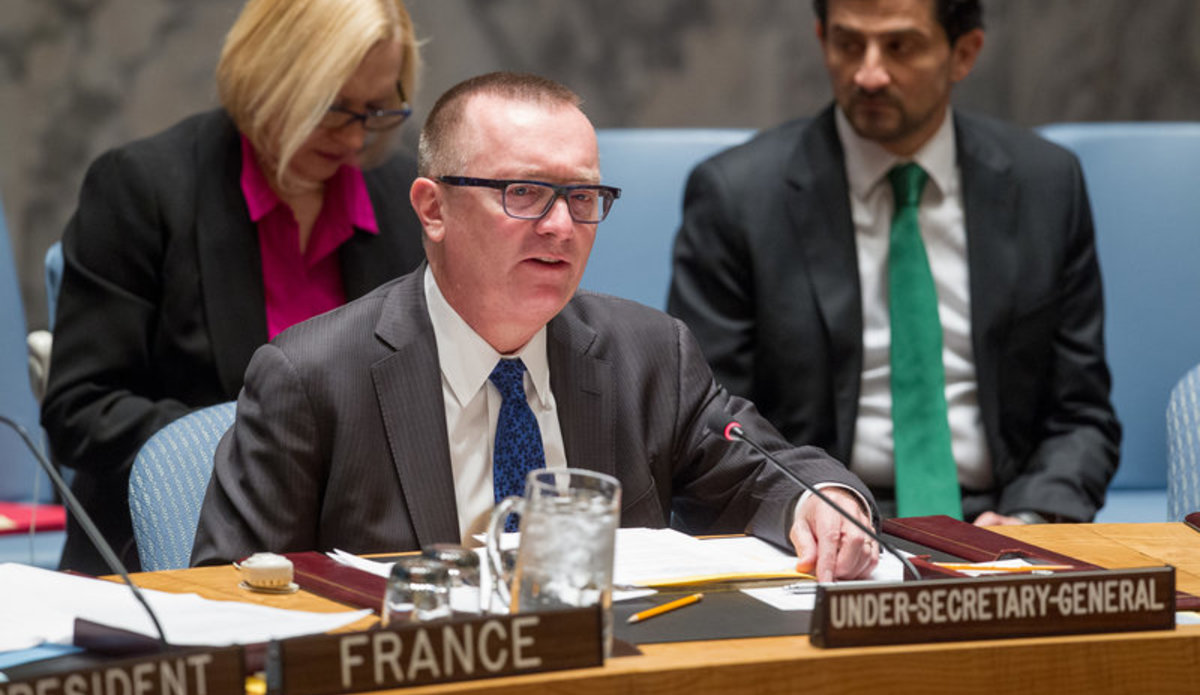Mr. President, distinguished members of the Council,
In the six weeks since my last briefing to this Council on 26 January, there have been a number of significant developments related to the conflict in eastern Ukraine.
Most pivotal among them was the signing by the Trilateral Contact Group and rebel representatives of the “Package of Measures for the Implementation of the Minsk Agreements” on 12 February in Minsk. This agreement, the result of tireless diplomacy by Chancellor Merkel, President Hollande, President Poroshenko and President Putin, provides a roadmap for a lasting peace in eastern Ukraine.
Recognising this fact, on 17 February, this Council unanimously adopted Resolution 2202, thereby providing the peace process in eastern Ukraine with a binding international framework to further engage all sides to find an urgent and lasting solution to the conflict.
However, as we converged in this Chamber on that same day, the fight for Debaltseve reached its climax, with hundreds, if not thousands, of innocent civilians caught in the cross-fire. As Ambassador Tagliavini, a signatory to the 12 February Minsk agreement, remarked to this Council on 27 February, the rebels’ unabated attacks for control over this strategic area were in clear violation of the agreement they had signed only five days prior.
Since 18 February, the situation appears to have calmed. However, as we are all well aware, the cease-fire remains fragile, not yet having taken hold firmly across the region. Sporadic violations are reported frequently, including south, near Mariupol, and once again near Donetsk airport.
The OSCE Special Monitoring Mission has monitored some withdrawals of heavy military equipment from the line of contact, but, due to lack of access and freedom of movement of its monitors, the Mission remains unable to verify the true extent of this process. It is also yet to receive baseline information regarding the sides’ inventory, routes for withdrawal, and where the weapons will be stored. As per the commitments undertaken by the parties in Minsk, full and unfettered access must be given to the OSCE and withdrawal of heavy weaponry must commence urgently, transparently and comprehensively.
We are aware that there will be no significant traction on the political track unless the prerequisite cease-fire and withdrawal of weapons are fully implemented. The history of this conflict has taught us that the window of opportunity to make these processes irreversible is limited.
Mr. President, distinguished members of the Council,
Eastern Ukraine still appears to be in limbo as we await full implementation of the Minsk package of measures. The road ahead will be difficult but it is critical that all concerned strictly adhere to and commence good-faith implementation of this agreement. We welcome the continued efforts of the leaders of Russia, Ukraine, France and Germany, as well as the crucial role played by the OSCE.
Ladies and gentlemen,
Let me also take this opportunity to touch briefly on President Poroshenko’s 17 February statement noting that Ukraine will be requesting a possible deployment of a UN-mandated peace mission to Ukraine. Subsequent to that, Ukrainian Foreign Minister Klimkin held discussions with the Secretary-General, USG Ladsous and myself on this issue. We informed the Foreign Minister that it was a decision for the members of this Council and that the Secretariat would be guided by its decision. To date, no formal request has been received from Ukraine.
With reference to the OSCE briefings to this Council on 27 February and the call for the UN to do more, the Secretariat continues its close cooperation with the OSCE on what more could be done to support their difficult and complex mandates.
Thank you, Mr. President.

